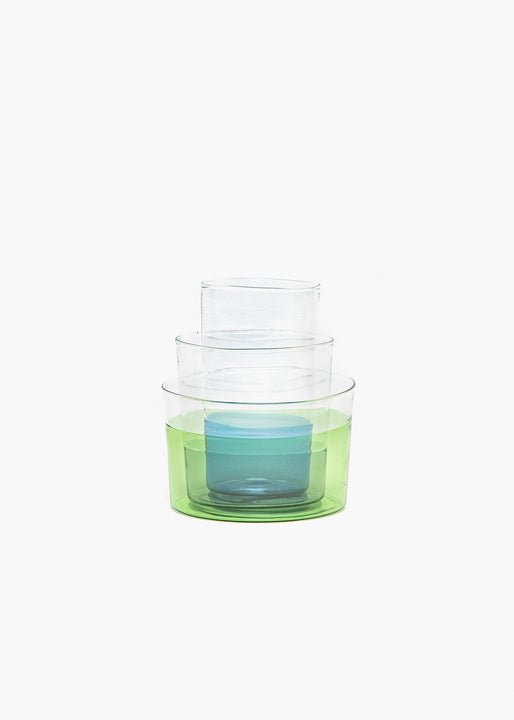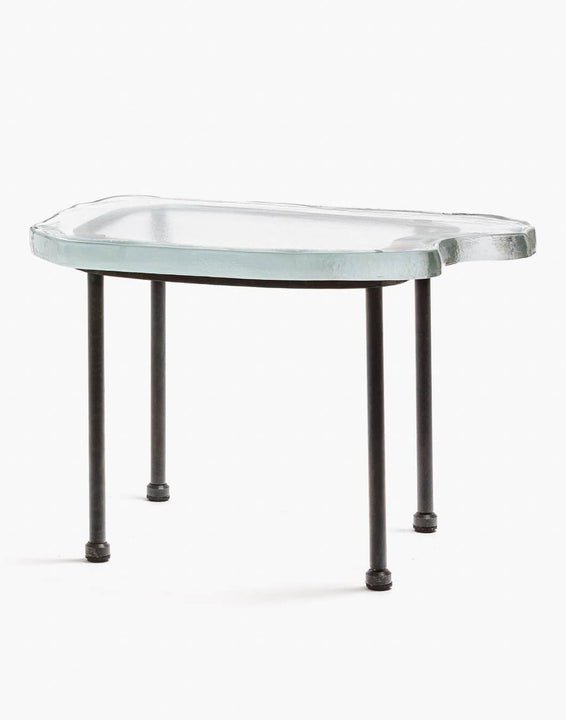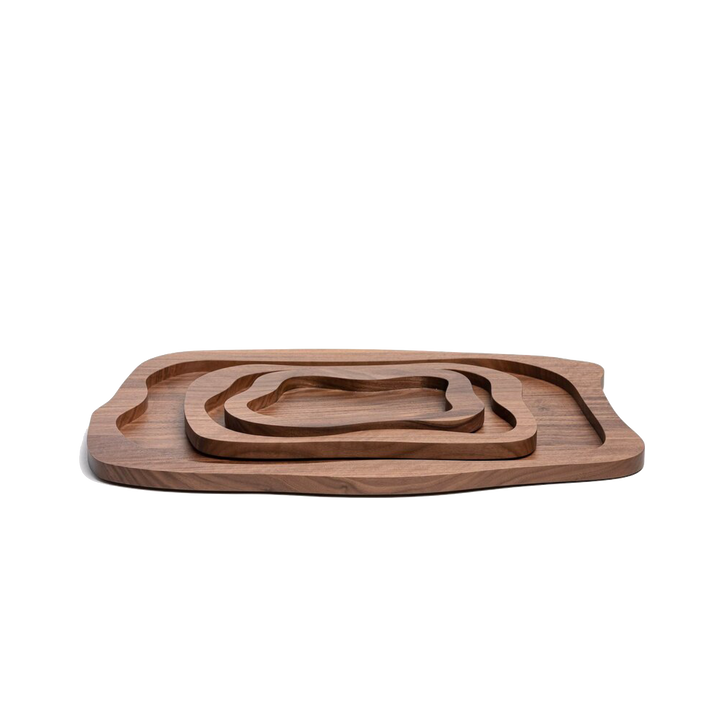Interview with designer Marie-Rose Kahane of Yali Glass
We are delighted to hear from Yali designer Marie-Rose, we hear how she continues - with a modern and contemporary take - 13th century glass techniques from her Murano Glass Venice workshop, the importance of dialogue and trust with her maestros and the balance of form and function within her work.

Yali Glass is and presents contemporary pieces, that yet, are routed in Venice’s glass making past – how does this history influence and shape creation and design?
We feel extremely fortunate to have at our disposal a myriad of techniques and patterns which go back to glass made in the Renaissance. Many of these complicated techniques can still be made today by greatly skilled glass maestros and we like using them on more contemporary lean shapes.


Each piece from Yali stands alone in their extreme beauty. Their impact is increased when displayed as collections or groupings – a vignette. Yali is envisioned and placed in a contemporary cross-referencing environment. And our association of Yali within these environments sets you apart – how does the surround and ultimate destination and presentation space of a Yali piece or Yali collection influence and shape your creation?
I think of the pieces I make as pieces I would like to have in my own house – to use in my own house: many things have to be right – the colour, the shape, the weight, the feel, the atmosphere… and I think that ultimately people choose the pieces because they would like to have that piece in their own intimate space – and most of the time when one goes through this process the object will fit well in the chosen home…

The Inland Waters series, are objects that emulate, echo and are inspired by this water and land based phenomenon. The pieces are ground-breaking in their creation – the close collaboration between you and the makers that made the vision a reality. How did this technical feat and beautiful organic vision come into fruition?
The ISOLA tables are made in the Veneto – my first meeting with the maestro Oscar was crucial – looking at my drawings, explaining my vision and dream, listening to his comments – this dialogue is so important. Oscar has a team of 8 people and they handle the molten glass at 1000 degrees like a perfectly well orchestrated ballet performance. The trust and collaboration with the maker are the base of anything we produce.



The beauty/art and design/practicality crossover. Pieces have a sculptural element to them; their colors – be it the solid color of a bright blue vase to a milky glass that allows shadows to form within the textures, ridges and motifs. To clear pieces – simply elegant in their functionality and minimalism enabling their use – a Yali glass vase full of flowers, a drinking glass full of water to be present and create the story of a piece. How do you strike a balance between these two concepts of beauty and practicality?
Function and form always go hand in hand – whenever we are satisfied with a new design it is tried out – the drinking glass has to be pleasant to hold in your hand – agreeable to touch and soft on the lips - the whole wonderful sensorial experience! The same with a vase – the process might start with imagining a shape and at the end we make sure that it works well with all kinds of flowers.


The organic undulating motif of the Inland Water series is present in new materials, Walnut trays and boards. How did this motif and series evolve to other mediums, materials and objects?
Working with a new idea is like being on a journey that can’t be stopped – so when during last lockdown I found myself far away from my Venice studio in a small Swiss village– surrounded by mountains and forests I felt this very strong drive to produce something in wood. Lakes and peaks started appearing in my drawings. Meeting a wonderful carpenter – Stefan – made it all possible. The magic process with maker! Learning about the many different sorts of timbers, the cutting and assembling wood, watching Stefan at work – a wonderful learning curve. The LAI boards are the results of this journey. ‘LAI’ means lakes in Romantsch and the organic shapes echo the many mountain lakes of the Engadin.
The walnut trays and the ISOLA tables all start from these images of nature I have in my mind – I am obsessed with their non symmetric organic shapes – I love the fluidity and simplicity and the harmony and peacefulness which emanate from these objects. The most recent NOT walnut chairs are the next objects produced on this journey!




How do you see Yali Glass, presently and evolving in the future to shape the trajectory of Murano glass internationally?
We have just started making short films about the crafters we work with – showing the highly skilled hands of the maestro – showing the forming of a piece. I believe that the positive collaboration with the makers is the key to the future. This dialogue nurtures the creative process. The maker is essential, and we want to make this more visible.
In the future we would like to continue to show the skills of Murano makers and share this excellency of craftmanship with the world.











